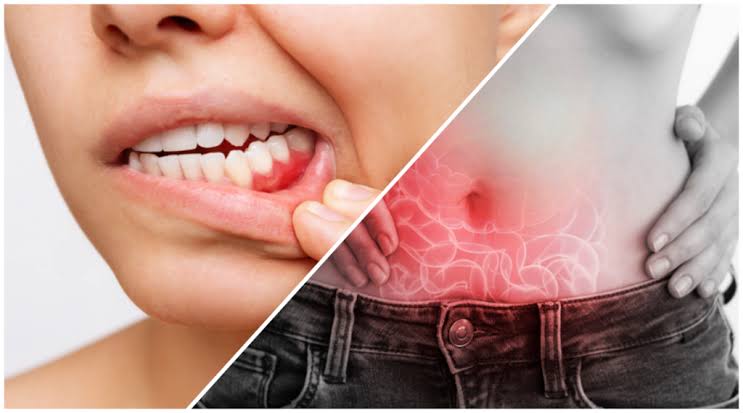At first glance, the gastrointestinal (GI) tract and oral cavity might seem like two distinct systems with little overlap. However, emerging research highlights a significant link between
gastrointestinal and dental health. Understanding this connection can provide valuable insights into the holistic approach needed for maintaining overall health. This article explores how these two systems interact and the implications for both dental and GI health from the point of view of the expert gastroenterologists at Manhattan Gastroenterology.
The Oral Cavity: The Gateway to the GI Tract
The mouth is the entry point to the gastrointestinal system. Everything that enters the digestive tract first passes through the oral cavity, making it a crucial site for dental and GI health. Here are some key ways in which these systems are connected:
Microbiome Interactions
The mouth and the gut are home to diverse microbial communities, known as microbiomes,
which play essential roles in health. The oral microbiome includes bacteria, viruses, and fungi that live in the mouth and are crucial for maintaining oral health. Similarly, the gut microbiome comprises trillions of microorganisms that aid digestion, immune function, and overall health.
Changes or imbalances in the oral microbiome can affect the gut microbiome and vice versa.
For instance, harmful bacteria from the mouth can be swallowed and disrupt the gut microbiome, potentially leading to GI conditions.
Digestive Process
Digestion begins in the mouth with mechanical chewing and saliva's enzymatic breakdown of food. Poor dental health, such as missing teeth or gum disease, can impair chewing efficiency, leading to larger food particles entering the stomach. This can strain the digestive system and affect nutrient absorption.
Common Conditions Linking Dental and GI Health
Several conditions demonstrate the close relationship between oral and gastrointestinal health:
Gastroesophageal Reflux Disease (GERD)
GERD occurs when stomach acid frequently flows back into the esophagus, causing heartburn and other symptoms. This acid can reach the mouth, leading to dental erosion, tooth sensitivity, and increased risk of cavities. Chronic acid exposure can also irritate the oral mucosa, leading to conditions such as oral ulcers.
Periodontal Disease
Periodontal (gum) disease is a chronic inflammatory condition caused by bacterial infection of the gums. Research has shown that periodontal disease is associated with systemic
inflammation, which can influence the development of GI disorders like inflammatory bowel
disease (IBD). Additionally, bacteria from the mouth can enter the bloodstream and affect other parts of the body, including the digestive system.
Helicobacter pylori Infection
Helicobacter pylori is a bacterium that causes stomach ulcers and is linked to stomach cancer. It is believed that H. pylori can inhabit the oral cavity and be transmitted to the stomach. Poor oral hygiene can increase the risk of H. pylori colonization in the mouth and subsequent GI infection.
Celiac Disease
Celiac disease is an autoimmune disorder triggered by ingesting gluten, leading to damage in the small intestine. One of the oral manifestations of celiac disease is dental enamel defects, such as discolored or pitted teeth. Oral health issues can be an early indicator of undiagnosed celiac disease.
Maintaining Both Dental and Gastrointestinal Health
Given the interconnectedness of dental and GI health, maintaining both is essential for overall well-being. Here are some strategies to promote both:
Good Oral Hygiene
Regular brushing, flossing, and dental check-ups are fundamental to preventing oral infections and diseases. Good oral hygiene practices can reduce the risk of harmful bacteria entering the digestive system.
Healthy Diet
A balanced diet of fiber, fruits, vegetables, lean proteins, and whole grains supports oral and gut health. Limiting sugary foods and beverages can prevent tooth decay and reduce the risk of GI issues.
Hydration
Staying well-hydrated helps maintain saliva production, essential for oral health, and aids in digestion and nutrient absorption in the gut.
Avoiding Tobacco and Excessive Alcohol
Tobacco use and excessive alcohol consumption are risk factors for both oral and GI cancers.
Avoiding these substances can reduce the risk of developing serious health conditions.
Regular Medical Check-Ups
Regular visits to both dental and medical professionals can help detect early signs of oral and gastrointestinal conditions. Early intervention and treatment can prevent complications and promote better overall health.
Conclusion
The link between gastrointestinal and dental health underscores the importance of a holistic approach to healthcare. By recognizing the interconnectedness of these systems, individuals can take proactive steps to maintain oral and digestive health. At the intersection of these two fields lies the potential for improved quality of life and better overall he

